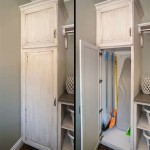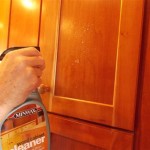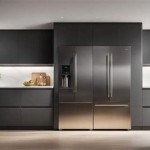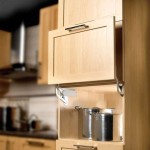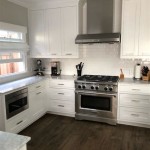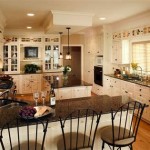Paints for Kitchen Cabinets: A Guide to Choosing the Right Finish
Kitchen cabinets are a focal point of any kitchen, significantly impacting the overall aesthetic and functionality of the space. Choosing the right paint for your cabinets is crucial to achieving the desired look and ensuring durability. With a wide range of paints available, it can be overwhelming to determine the best option for your needs. This article explores different paint types commonly used for kitchen cabinets, providing insights into their characteristics and suitability for various applications.
Types of Paint for Kitchen Cabinets
There are two main categories of paint suitable for kitchen cabinets: oil-based and water-based. Both types offer distinct advantages and disadvantages, which should be weighed carefully before making a decision.
Oil-Based Paints
Oil-based paints have been a popular choice for kitchen cabinets for years due to their durability and resistance to moisture. They are known for their high gloss finish, providing a sleek and polished look. Oil-based paints also offer excellent adhesion and coverage, making them suitable for covering imperfections on cabinet surfaces. However, they have some drawbacks. Oil-based paints tend to have a strong odor and require longer drying times than water-based paints. They also require the use of mineral spirits for cleanup, which can be messy and time-consuming.
Water-Based Paints
Water-based paints, also known as latex paints, have gained popularity in recent years due to their convenience and environmental friendliness. They are easier to clean up with water, have less odor, and dry faster than oil-based paints. Water-based paints also offer good durability and moisture resistance when applied correctly. However, they may not be as durable as oil-based paints in high-traffic areas or humid environments. Water-based paints also have less gloss than oil-based paints, with a more matte or satin finish.
Factors to Consider When Choosing Paint for Kitchen Cabinets
When choosing the best paint for your kitchen cabinets, several factors must be considered, including:
1. Finish
The finish of the paint refers to its level of glossiness, which can significantly impact the overall appearance of the cabinets. High-gloss finishes are shiny and reflective, while matte finishes have a flat, non-reflective appearance. Satin finishes fall somewhere in between, offering a soft sheen. The choice of finish depends on personal preference and the desired aesthetic for the kitchen. High-gloss finishes are generally better for hiding imperfections, but they can also highlight any dust or fingerprints. Matte finishes are good for creating a relaxed and modern look, but they may show dirt and scratches more easily.
2. Durability
Kitchen cabinets are subjected to daily wear and tear, so choosing a durable paint is essential. Oil-based paints are known for their superior durability, making them ideal for high-traffic areas and families with children. Water-based paints can also be durable, but they may require more frequent touch-ups in high-wear areas.
3. Color
The color of your kitchen cabinets plays a pivotal role in setting the overall tone of the space. Choosing a paint color that complements the existing countertops, backsplash, and other kitchen elements is crucial. Consider the existing color scheme and the mood you want to create. Light colors tend to make a space feel more airy and open, while darker colors can create a warm and inviting atmosphere.
4. Application
The application method also impacts the type of paint you choose. Oil-based paints are typically more difficult to apply than water-based paints, which are easier to work with and blend smoothly. If you are planning to paint the cabinets yourself, consider the level of difficulty and your experience with different paint types.
Types of Cabinet Paint Finishes
Beyond the oil-based and water-based distinction, cabinet paints are available in various finishes, each offering a unique aesthetic and level of sheen:
1. High Gloss
High-gloss finishes are highly reflective and create a polished, formal look. They are typically used for traditional kitchens and can make a space feel more expansive. However, they can also highlight imperfections and require more upkeep to maintain their shine.
2. Semi-Gloss
Semi-gloss finishes offer a balance between shine and matte, providing a subtle sheen. They are often used for kitchens because they are easier to clean than matte finishes but do not reflect light as much as high-gloss finishes.
3. Satin
Satin finishes have a soft, velvety look and are a popular choice for kitchen cabinets. They offer a good compromise between durability and ease of cleaning. Satin finishes are also less prone to showing imperfections than high-gloss finishes.
4. Eggshell
Eggshell finishes have a slight sheen, resembling the surface of an eggshell. They are softer than satin finishes and offer a more relaxed and understated look. However, eggshell finishes may not be as durable as other options and can show scratches more easily.
5. Matte
Matte finishes are flat and non-reflective, offering a modern and minimalist aesthetic. They can help to create a cozy and intimate feel, but they may show dirt and stains more easily.
Ultimately, the choice of paint for your kitchen cabinets comes down to personal preference, desired aesthetic, level of durability needed, and application method. By carefully considering these factors and exploring the characteristics of different paint types and finishes, you can select the best option to achieve your kitchen renovation goals and transform your kitchen into an inviting and functional space.

7 Expert Tips For Flawless Kitchen Cabinet Painting

How To Paint Kitchen Cabinets In 7 Simple Steps

How To Paint Kitchen Cabinets In 7 Simple Steps

How To Paint Kitchen Cabinets The Love Notes Blog

Durable Kitchen Cabinet Painting 10 Year Warranty Columbus Oh

Interior Designers Share Best Kitchen Cabinet Paint Colours To Update Tired Designs Express Co

Kitchen Cabinet Painting Refinishing Spray Net

How To Paint Kitchen Cabinets Best Color Ideas Cost

Should I Paint Or Refinish My Kitchen Cabinets

Painted Kitchen Cabinets One Year Later The Palette Muse
Related Posts

